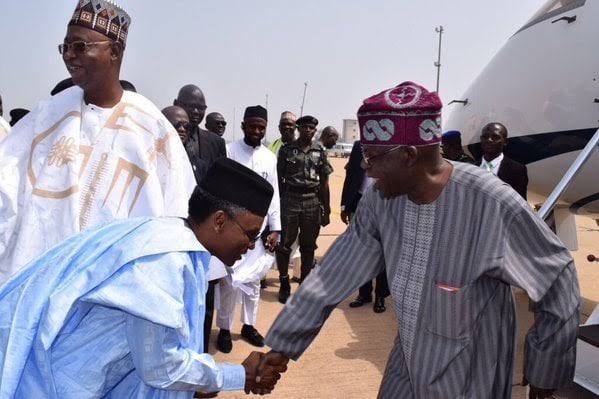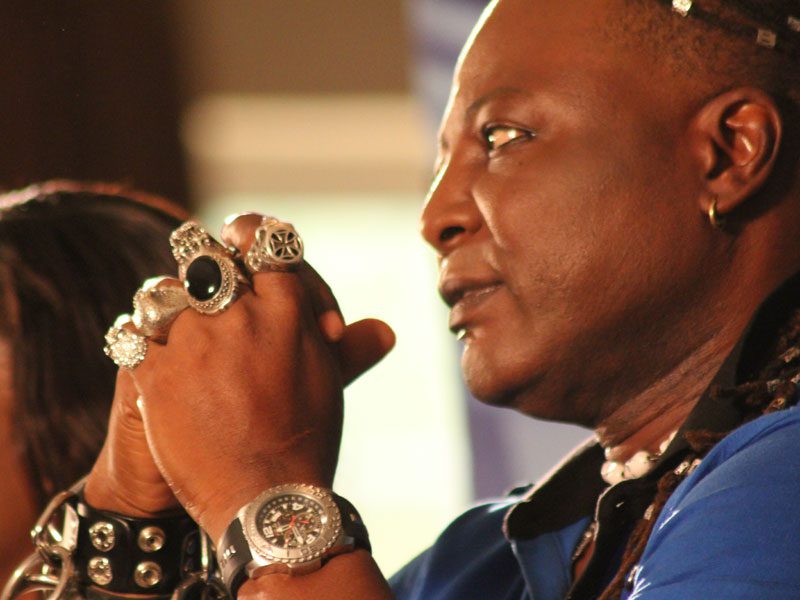National Issues
Godfatherism And Its Socio-economic Effects In Nigeria -By Ejiya Ofure Joy
The effects of godfatherism can also be seen in the conduct of elections in Nigeria. When powerful individuals or groups are able to exert undue influence over politicians, they may also be able to influence the outcome of elections. This can lead to a situation where the will of the people is subverted, and where democracy is undermined.

Nigeria is a country with a rich cultural heritage and a complex political landscape. One of the most pressing issues facing our nation today is the problem of Godfatherism in Nigerian politics. This phenomenon refers to the practice of powerful individuals or groups exerting undue influence over politicians, often in exchange for political favors of financial gain. This practice, which involves powerful individuals or groups exerting undue influence over politicians in exchange for political favors or financial gain, has been a major obstacle to progress and development in our country.
Godfatherism has become the central point of political vandalism, this is as a result of the over concentration of authority and capital of politicians explains the ascent for the control of the structures and organisations by the political class in the nation, this struggle, and the resulting values have obstructed significantly on society in a various ways.
The word ‘godfather’ conjures up different meanings to different people. In many parts of Europe and America, it is simply associated with a cuddly uncle. The word has almost the same meaning in the Catholic Church tradition. A young man trying to become baptized or married in the Catholic Church is expected to have a godfather. The Catholic Church’s godfather is simply chosen from among the larger congregation and need not be a relative to the Godson. The latter counsels the young person on how to live a responsible life. In France, the term ‘godfather of industry’ is used to depict corporate titans, that is, businessmen with the most clout, and an intriguing class of people who keeps the economy running. The French ‘godfathers’ can be broken down into two types: the first are those who manipulate the economy for their own benefit, and the second those that can be referred to as crisis fixers, social reformers, and populist advocates of the poor. Another type of godfather is one often seen in American ‘cowboy films’. Such people are associated in the films with mafia gangs. The godfather is usually the ‘big boss’; he surrounds himself with all manner of criminal, often violent, clientele. The latter take orders from the ‘big boss’ and defer to his ‘good judgment’ in virtually all things. The godfather defends his adopted sons when they run into problems, either with law enforcement agents or members of other gangs. Godfatherism sometimes manifests itself in the politics of developed countries of the world and Latin American countries in terms of some criminal underworld groups sponsoring Politicians during elections in return for the protection of contracts. This kind of situation is euphemistically referred to as ‘party machine’ politics in the American political science literature.’
Our interest in this article concerns political godfathers. They are slightly different from all the others identified above. Such people are found all over the world. They consist of rich men whose contributions to campaign funds of some candidates have helped the latter to win elections. Even in the developed world, such people invest heavily, most especially in the media, to shore up the image of their candidates while at the same time helping to discredit rival candidates. An example is Carlos Slim, a low businessman whose financial support helped Vincente Fox break the Institutional Revolutionary Party’s seventy-one-year grip on power in the 2000 presidential elections in Mexico.’ Such power brokers are sometimes referred to as ‘godfathers’.
Nigeria has all the above types of godfathers: most especially those who serve others, those who expect the society to serve them, and even those who channel their resources into criminal activities. Our interest in this paper is in the godfathers in the political sector. Dr Jibrin Ibrahim defined this category of Nigerians, during an interview granted to the BBC on 10 November, 2003 as ‘men who have the power personally to determine who gets nominated and who doesn’t in an election in a state’. Governor Chimaroke Nnamani of Enugu, who had a running battle with his godfather, Senator Jim Nwobo, for over two years, defined godfather from his own personal experience as follows:
…an impervious guardian figure who provided the lifeline and direction to the godson, perceived to live a life of total submission, subservience and protection of the oracular personality located in the large, material frame of opulence, affluence and decisiveness, that is, If not ruthless … strictly, the godfather is simply a self-seeking individual out there to use the government for his own purposes.’
Becoming the elected candidate of a party for a particular position can be said to be largely influenced by whomsoever the godfather endorses. Take for example, the primary elections which took place in the All-Progressive Congress party in 2019. Governor Akinwunmi Ambode was expected to run for his second term in office and naturally one would expect no “able” opposition from his party as he was expected to be the sole candidate, but to everyone’s dismay, the run for his second term in office and naturally once “supposed” godfather of APC had another candidate in mind and it was no surprise when his chosen candidate won the primaries and went on to win the gubernatorial elections. The reason for this unusual turn of events was not far-fetched by many, the former Governor was not dancing to the tune of his godfathers.
One of the most significant effects of godfatherism is the concentration of power and resources in the hands of a few individuals or groups. This has led to a situation where certain regions or groups are favored over others, and where political decisions are made based on personal interests rather than the needs of the people. This has contributed to a sense of marginalization and disenfranchisement among many Nigerians, particularly those who live in poverty or in rural areas.
Another effect of godfatherism is the perpetuation of corruption in Nigerian politics. When politicians are beholden to powerful individuals or groups, they may be more likely to engage in corrupt practices in order to maintain their position or to please their benefactors. This can lead to a situation where public resources are misused or stolen, and where the needs of the people are ignored.
The effects of godfatherism can also be seen in the conduct of elections in Nigeria. When powerful individuals or groups are able to exert undue influence over politicians, they may also be able to influence the outcome of elections. This can lead to a situation where the will of the people is subverted, and where democracy is undermined.
Despite these challenges, there are many Nigerians who are working tirelessly to promote transparency and accountability in our political system. This includes civil society organizations, journalists, and activists who are dedicated to exposing corruption and ensuring that the voices of ordinary citizens are heard. There are also many politicians who are committed to breaking the cycle of godfatherism in Nigerian politics, and who are working to create a more open and democratic political culture in our country.
In order to address the problem of godfatherism in Nigeria, it is important to continue to support these efforts. This includes promoting transparency and accountability in government, supporting independent media and civil society organizations, and working to create a more level playing field for politicians and political parties. By doing so, we can help to create a more just and equitable society, and to ensure that the needs of all Nigerians are met.


















